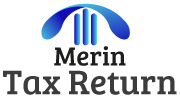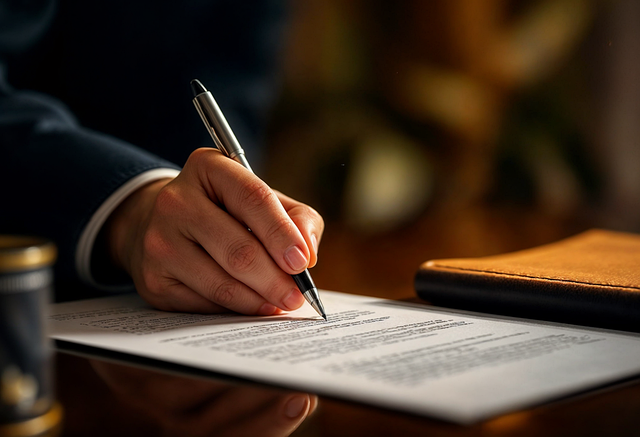The Ultimate Guide to Self-Employed Tax Returns in the UK: How an Accountant Can Help
Navigating the world of self-employment in the UK can be both exciting and daunting. While being your own boss offers flexibility and freedom, it also comes with responsibilities, particularly when it comes to taxes. Filing a self-assessment tax return is a crucial part of being self-employed, and getting it right is essential to avoid penalties and ensure compliance with HMRC regulations.
For many self-employed individuals, managing taxes can feel overwhelming. This is where an accountant can make a world of difference. In this guide, we’ll explore everything you need to know about self-employed tax returns in the UK, the benefits of hiring an accountant, and how to streamline the process to focus on growing your business.
Table of Contents
- What is a Self-Assessment Tax Return?
- Who Needs to File a Self-Assessment Tax Return?
- Key Deadlines for Self-Employed Tax Returns
- What Records Do You Need to Keep?
- Understanding Allowable Expenses
- How to Register as Self-Employed with HMRC
- Filling Out Your Self-Assessment Tax Return
- Common Mistakes to Avoid
- Why Hire an Accountant for Your Self-Employed Tax Return?
- How to Choose the Right Accountant
- DIY vs. Hiring an Accountant: Pros and Cons
- Tax Planning Tips for Self-Employed Individuals
- What Happens if You Miss a Deadline?
- How Technology is Changing Tax Preparation
- Frequently Asked Questions (FAQs)
What is a Self-Assessment Tax Return?
A self-assessment tax return is a system used by HMRC to collect Income Tax from individuals who are not taxed through PAYE (Pay As You Earn). This includes self-employed individuals, freelancers, contractors, and business owners. The process involves reporting your income, expenses, and other financial details to HMRC to calculate how much tax you owe.
For self-employed individuals, the self-assessment tax return is the primary way to declare earnings and pay taxes. It covers not only Income Tax but also National Insurance Contributions (NICs) and, if applicable, other taxes like Capital Gains Tax or Student Loan repayments.
Who Needs to File a Self-Assessment Tax Return?
You are required to file a self-assessment tax return if:
- You are self-employed as a sole trader or in a partnership.
- You earn more than £1,000 from self-employment in a tax year (before deducting expenses).
- You have other sources of income, such as rental income, investments, or foreign income.
- You need to pay Capital Gains Tax.
- You are a director of a company (unless it’s a non-profit organization).
- Your income exceeds £100,000.
Even if you don’t fall into these categories, you may still need to file a return if HMRC sends you a notice to do so.
Key Deadlines for Self-Employed Tax Returns
Meeting deadlines is critical to avoid penalties. Here are the key dates to remember:
- 5 October: Register for self-assessment if you’re newly self-employed.
- 31 October: Deadline for paper tax returns.
- 31 January: Deadline for online tax returns and payment of any tax owed.
- 31 July: Second payment on account deadline (if applicable).
Missing these deadlines can result in fines, so it’s essential to stay organized and plan ahead.
What Records Do You Need to Keep?
Accurate record-keeping is the foundation of a successful tax return. As a self-employed individual, you should keep records of:
- All income (invoices, receipts, bank statements).
- Business expenses (receipts, bills, mileage logs).
- VAT records (if registered for VAT).
- PAYE records (if you have employees).
- Personal income (e.g., dividends, rental income).
HMRC requires you to keep these records for at least five years after the 31 January submission deadline for the relevant tax year
Understanding Allowable Expenses
One of the most significant advantages of being self-employed is the ability to claim allowable expenses, which reduce your taxable profit. Common allowable expenses include:
- Office costs (stationery, phone bills, internet).
- Travel expenses (fuel, train fares, accommodation for business trips).
- Clothing expenses (uniforms, protective gear).
- Staff costs (salaries, subcontractor fees).
- Stock and materials.
- Insurance and professional fees (accountancy, legal advice).
- Marketing and advertising costs.
It’s important to note that you can only claim expenses that are wholly and exclusively for business purposes.
How to Register as Self-Employed with HMRC
If you’re new to self-employment, you’ll need to register with HMRC. Here’s how:
- Visit the HMRC website and create a Government Gateway account.
- Complete the online registration form for self-assessment.
- Once registered, you’ll receive your Unique Taxpayer Reference (UTR) number.
- Set up your online tax account to manage your self-assessment.
Registering promptly ensures you receive reminders about deadlines and avoid late registration penalties.
Filling Out Your Self-Assessment Tax Return
Filling out your tax return involves several steps:
- Log in to your HMRC online account.
- Complete the relevant sections, including income, expenses, and allowances.
- Declare any other income (e.g., rental income, dividends).
- Calculate your tax liability.
- Submit your return and make the payment.
While the process is straightforward, it can be time-consuming and complex, especially if you have multiple income streams or complex expenses.
Common Mistakes to Avoid
Even small errors can lead to penalties or delays. Common mistakes include:
- Missing deadlines.
- Incorrectly reporting income or expenses.
- Failing to claim all allowable expenses.
- Not keeping proper records.
- Forgetting to declare additional income.
An accountant can help you avoid these pitfalls and ensure your return is accurate and compliant.
Why Hire an Accountant for Your Self-Employed Tax Return?
Hiring an accountant offers numerous benefits:
- Expertise: Accountants are trained to navigate complex tax laws and regulations.
- Time-saving: Outsourcing your tax return frees up time to focus on your business.
- Maximizing deductions: An accountant can identify allowable expenses you might miss.
- Peace of mind: Knowing your return is accurate and compliant reduces stress.
- Tax planning: Accountants can help you plan for future tax liabilities and optimize your finances.
How to Choose the Right Accountant
When selecting an accountant, consider:
- Qualifications (look for ACCA, ICAEW, or CIMA members).
- Experience with self-employed clients.
- Fees and pricing structure.
- Availability and communication style.
- Reviews and recommendations.
A good accountant should feel like a partner in your business, helping you achieve your financial goals.
DIY vs. Hiring an Accountant: Pros and Cons
DIY Pros:
- Cost-effective.
- Full control over your finances.
DIY Cons:
- Time-consuming.
- Risk of errors.
- Limited tax planning.
Hiring an Accountant Pros:
- Expertise and accuracy.
- Time-saving.
- Strategic tax planning.
Hiring an Accountant Cons:
- Additional cost.
- Requires trust and communication.
Tax Planning Tips for Self-Employed Individuals
Effective tax planning can save you money and reduce stress. Tips include:
- Set aside money for tax bills in a separate account.
- Make use of tax-efficient savings and investments.
- Consider incorporating your business if it makes financial sense.
- Regularly review your expenses and income.
What Happens if You Miss a Deadline?
Missing a deadline can result in:
- An initial £100 fine.
- Additional penalties for late payment.
- Interest on unpaid tax.
- Potential investigations by HMRC.
If you’re struggling to meet a deadline, contact HMRC as soon as possible to discuss your options.
How Technology is Changing Tax Preparation
Technology is revolutionizing tax preparation, with tools like:
- Cloud accounting software (e.g., QuickBooks, Xero).
- Receipt-scanning apps.
- Automated tax calculators.
- Digital record-keeping systems.
These tools can simplify the process and make it easier to collaborate with your accountant.
Frequently Asked Questions (FAQs)
Q: Can I claim home office expenses?
A: Yes, if you use part of your home exclusively for business, you can claim a proportion of costs like rent, utilities, and internet.
Q: Do I need to pay National Insurance?
A: Yes, self-employed individuals pay Class 2 and Class 4 NICs, depending on their profits.
Q: Can I change my tax return after submitting it?
A: Yes, you can amend your return within 12 months of the filing deadline.
Conclusion
Filing a self-assessment tax return is a critical responsibility for self-employed individuals in the UK. While it can be complex, understanding the process and seeking professional help when needed can make it manageable. By staying organized, keeping accurate records, and working with a qualified accountant, you can ensure compliance with HMRC regulations and focus on what you do best—running your business.

